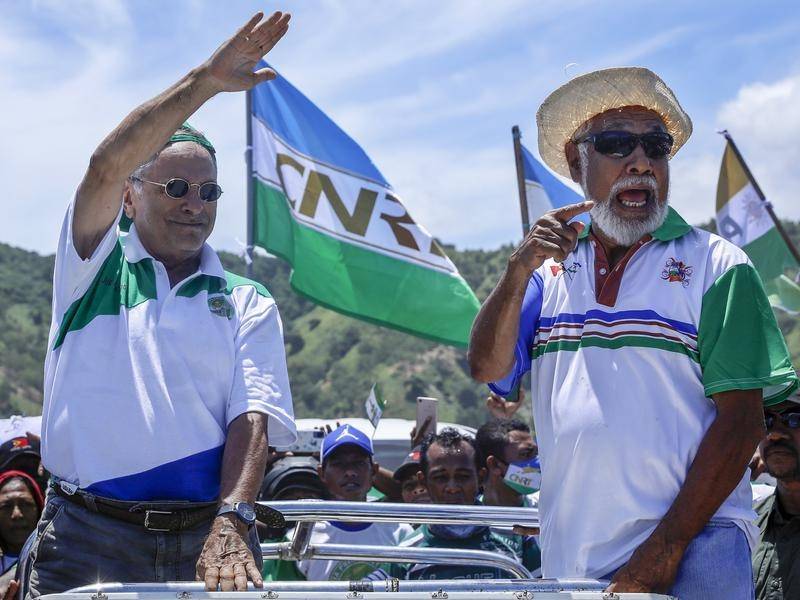Timor-Leste independence hero Xanana Gusmao’s party has won the parliamentary election but has fallen short of an outright majority.
The opposition National Congress for Timorese Reconstruction (CNRT) led with 41.6 per cent of the votes, while its main rival and incumbent coalition leader Fretilin got 25.7 percent, according to the electoral commission.
The result of Sunday’s election paves the way for a return to power for the 76-year-old Gusmao, Timor-Leste’s first president, if he can form a coalition.
If there is no outright winner, the constitution gives the party with the most votes the opportunity to form a coalition.
Voters cast their ballots for 65 seats in parliament, hoping to end years of deadlock in Asia’s youngest country.
CNRT secured 31 of those seats — just shy of the 33 needed for an outright majority — meaning it would have to work with one or more of the other 16 parties.
It was expected to enter into a coalition with the Democratic Party (PD), which has gained six seats.
CNRT won the presidential election last year, with Gusmao’s ally and Nobel Peace laureate Jose Ramos-Horta taking the post.
But Fretilin, formally the Revolutionary Front for an Independent East Timor, led the incumbent coalition government going into the election.
Fretilin fought for an end to Indonesia’s occupation of Timor-Leste, and Gusmao led its military wing.
He spent the final years of the occupation behind bars, and was elected Timor-Leste’s first president in 2002 after the country gained independence.
He split from Fretilin in 2007 to found CNRT.
That year, he became prime minister and served in that post until 2015.
More than two decades after independence, Timor-Leste still struggles with poverty, the aftermath of the COVID pandemic and devastating natural disasters, including a 2021 cyclone that killed at least 40 people.
The former Portuguese colony’s budget is heavily dependent on oil revenues, but earnings from existing fossil fuel projects are soon expected to run dry.
The next government will need to decide on allowing the development of the Greater Sunrise project, which aims to tap trillions of cubic feet of natural gas.
Gusmao and former prime minister Mari Alkatiri, Fretilin’s leader and also an independence movement icon, have been locked in a bitter feud for decades.
Younger voters make up a large part of the electorate in a country where 65 percent of the population is below 30.
Many expressed hope on Sunday the next government would focus on fighting poverty and improving infrastructure.
SOURCE: ABC/PACNEWS














